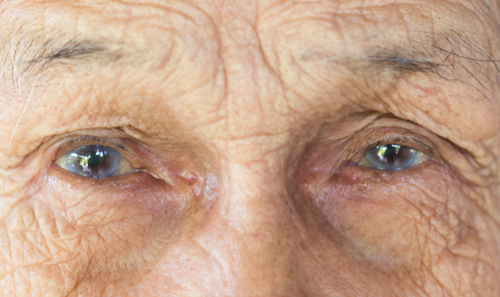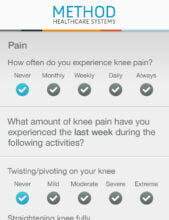Cataracts are very common. In fact, virtually anyone who reaches a certain age will likely develop cataracts, and even children and teenagers can develop cataracts in some rare instances. Moreover, a cataract forms when the eye’s natural lens becomes clouded over. The natural lens of the eye lies behind the pupil and the iris, and cataract formation is the leading cause of vision impairment in people over the age of forty and is also the number one cause of total vision loss globally.
There are also 3 different types of cataracts, The first is known as a subcapsular cataract. It takes place at the back of the human lens and diabetics as well as people who take steroid medications at elevated doses are the most susceptible to developing such a cataract. Nuclear cataracts are the second form, and actually, form in the nucleus of the human lens. They are also most commonly associated with the natural and degenerative aging process.
The third is known as a cortical cataract and consists of white opacities that look like wedges, and it commences in the lens’ periphery and then continues until it reaches the center. Moreover, the reason why cortical cataracts are called cortical cataracts is because they actually form in the lens cortex, which is the lens component that surrounds the nucleus.
Why You May Need Cataract Surgery?
Most people who live to be a certain age will develop cataracts. In fact, over half of people over the age of 80 will develop cataracts. In any event, if you notice vision changes, such as becoming more nearsighted, having poorer night vision, or noticing that most colors appear dull in appearance, then you should see an optometrist. If the doctor determines that you have cataracts then they will usually recommend surgery, as cataracts rarely go away on their own (spontaneous remission) and, when left untreated, usually lead to complete blindness.
What to Expect?
The good news is that cataract surgery has become very sophisticated today, and can usually be completed in just 15 minutes. Using phacoemulsification, about 98% of cataract surgeries are successful and devoid of any complications whatsoever. As for recovery, expect to remain in the hospital or clinic for about an hour, as you may feel a little woozy from the anesthesia. The doctor will also place either a clear shield or a bandage over the eye.
You will also need to apply eye drops to your eyes several times a day. Usually, a mix of anti-inflammatories and antibiotics are prescribed, and you may need to apply some of the drops every day for up to a full month in some cases. After cataract surgery the main goal is to avoid infection and to keep water out of the eye. You will also be asked to come back for several follow up appointments to ensure that your eye is healing as intended.
What Lens Type to Select?
In terms of lens choice, you will have to determine what is most important to you. For many people, monofocal implants work well because they provide the best contrast vision. As such, they are superb for many activities, such as driving. However, many people with monofocal implants will still need to wear glasses for distance or for reading, so multifocal lenses may be a better option for you if you don’t want to wear glasses and perform a lot of close work.
How Does Laser-Assisted Cataract Surgery Work?
Information is gathered about the lens via a camera-based imaging device. The ultrasound device is placed over the eye so that the surgeon can map the surface of your eye. Then, the doctor will make an incision in your cornea using a sophisticated laser in order to create an opening in the capsule of your lens.
Benefits of Laser Cataract Surgery over Traditional Surgery
Thanks to state of the art femtosecond laser technology, cataract surgery has never been as reliable, predictable, safe, and accurate as it is today. Moreover, the surgical corneal incision that is made with the laser-which is operated via a computer-is also ten times more accurate than when it is performed by hand. The recovery times are also quicker, with a lower risk of complications after the surgery, and, given the fact that laser eye surgery has quickly become the norm in the medical field, the cost has also dropped substantially over the last 5 years.
Not Everyone Qualifies for Laser Eye Surgery
In order to qualify for laser eye surgery, you must be at least 18 years of age. You must also have had stable vision over the previous year, at the very least, and must not have a history of corneal eye disease, or be currently suffering from active corneal eye disease. Furthermore, you must have a stable contact lens or eyeglass prescription for at least two to three years, and must not be currently nursing or pregnant.
Conclusion
Also, you should not have any serious eye conditions, such as glaucoma, macular degeneration, corneal ulcers, diabetic retinopathy, or keratoconus – which is a serious condition that causes the cornea to progressively thin over time. Also, while cataract surgery will likely drastically improve your vision, you should be willing to accept the possibility that you may still need to wear glasses under certain conditions, such as when you drive when it is dark or foggy outdoors.







